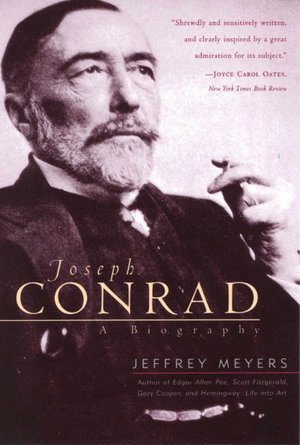The other day, my mother-in-law presented me with a news clipping from 1991. Keep in mind y’all, this was back when The AJC was still The Atlanta Journal in the morning and The Atlanta Constitution in the afternoon. “This seemed like something Pretty Southern,” my Momma J told me when she presented me with the yellowed page.
And indeed it was. The headline from this article read “Conrad’s lover from Atlanta”. This story turned out to be a book review on “Joseph Conrad: A Biography” by Jeffrey Meyers. The book critic who penned the story was S. Keith Graham, for whom Google did not turn up any search results. Well, my mother-in-law found him worthy of historical preservation. I am glad she did.
The British author who penned “Heart of Darkness” was actually in love with a Southern woman. Jane Anderson, an Atlanta native, was the fabulously gregarious daughter of Ellen Luckie (a.k.a. the family for whom Luckie Street is named). While this was supposed to be a book review about Conrad’s biography, the the critic did a fantastic job of digging deeper into the story.
From Goodman’s review: “When Conrad, 58, met her during World War I, she was a beautiful war correspondent for British papers, just 28 years old (and probably the mistress of Lord Northcliffe, the British newspaper magnate). Her Georgian accent and fun-loving manner thoroughly charmed not only Conrad (whom she called ‘the greatest writer in the world’) but also his gluttonous (and devoted) lump of a wife Jessie and their two sons.”
The journalist goes on to cite the biographer (Meyers) who informs the reader, “Jane was Conrad’s last (and perhaps first) chance to sleep with a beautiful well-born woman…He knew this and seized the opportunity.” Meyers cites in his work that the Georgia-girl-journalist later went on to marry a Spanish count (which she served prison time for her loyalty to the fascists during the Spanish Civil War). In the 1940s, she was indicted “along with poet Ezra Pound” on a charge of “treason for broadcasting Nazi propagande (in her case from Germany) against America and its allies. And, though she was arrested following World War II, she subsequently disappeared, perhaps under the protection of Spain’s Franco.”
A letter which Anderson herself wrote to Conrad appears in the biography. “[Joseph Conrad’s] voice is very clear and fine in tone, but there is an accent which I never heard before…And his verbs are never right…His head is extraordinarily fine in the modeling, although the forehead is not high. There are certain planes about the eyes, however. It is the pose of the head, which is a little shrunken into his shoulders, which gives the impression of strength. His mouth…is full but sensitive. But is is his eyes which are the eyes of genius. They are dark…And in them is a curious hypnotic quality. ‘I would show you,” he said, “ze spire of ze cathedral as you would see it from ze hills – but my car is broken, and we do not go. Zis will be for anuzzer time.”
There’s a lost art to penning reviews. Back in my glory days at UGA, I was privileged to take Valerie Boyd’s critical writing class. Professor Boyd, the former arts editor from The AJC, taught us that all good journalistic principles apply to critiquing another artist’s work. A writer must be fair and balanced in telling the public the true story. This review by S. Keith Graham is a pretty fine example of an excellent critique and one I will transfer from my mother-in-law’s files to my very own.
To purchase the biography, click here to Amazon.

